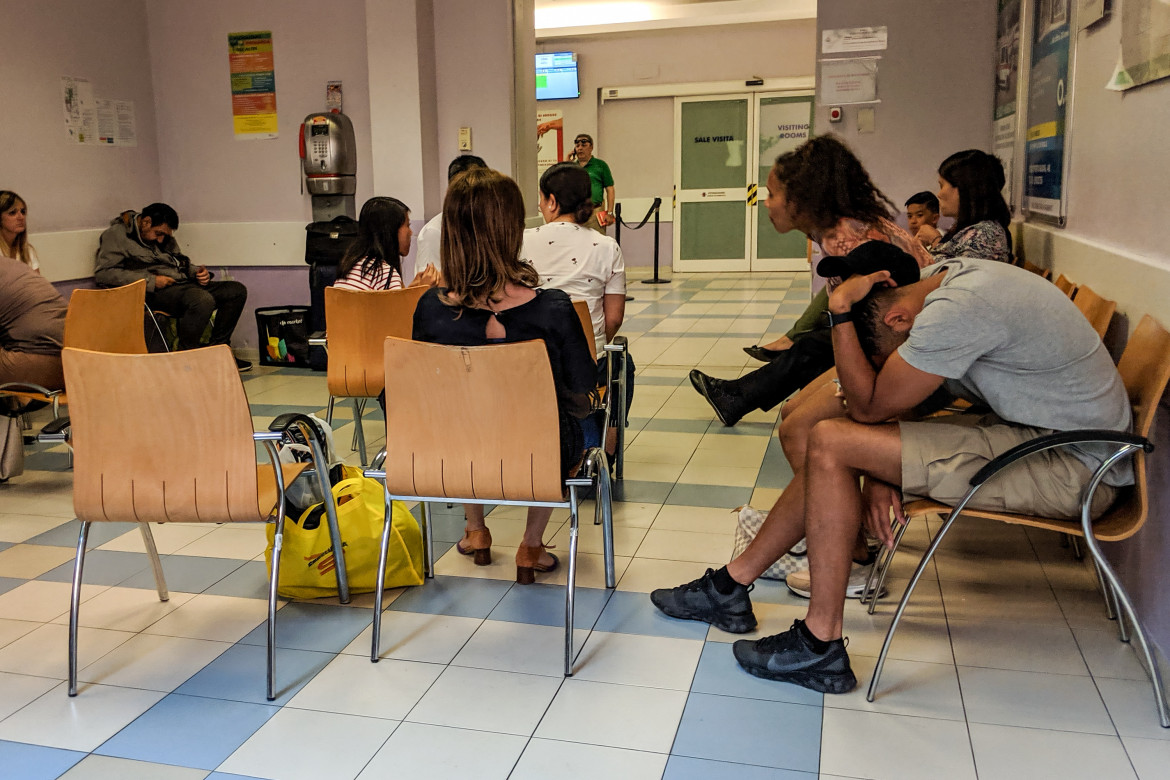Analysis
The Italian health system is being privatized – only politics can save it
The American healthcare model has already shown its effects in the United States to be both disastrous and financially unsustainable. It would amount to a complete overturning of constitutional principles and the structure of the public health service.

The privatization of health care is beginning to show the traits that define it: large insurance companies, hospitals, diagnostics facilities, with an increasingly multinational dimension, which see health care as the fastest growing market with the greatest profit opportunities.
In recent weeks, the news has come in one after the other: the heirs of the Agnelli family, through their holding company Exor, have acquired a 15% stake in Philips, the Dutch company moving away from consumer electronics to focus on health technologies. Exor’s investments in health care include other European companies totaling about €4 billion.
The San Donato Group, the largest private health care consortium in Italy, with 18 hospitals (including San Raffaele in Milan), dozens of facilities and more than 7,000 physicians, has bought a majority stake in American Heart of Poland, the third-largest private healthcare operator in Poland, and put together deals for hospitals and healthcare personnel in several Arab countries. In Veneto, the Center for Medicine has expanded its network of private and contracted facilities with 800 physicians and more than 300 staff, spread across several cities, with a 40% increase in services provided.
The strengthening of the private healthcare sector has been fueled by the dominant narratives that “we can’t afford the costs of public health care” and that it is “inefficient and wasteful.” Expansion scenarios include outsourcing diagnostics and specialty care to private insurance, leaving essential care to public health. But the idea of an outflow of high-income citizens from the National Health Service is also coming back: the wealthiest would stop contributing to the financing of public services, with public health care “for the poor,” destined to degrade, contrasted with the islands of private excellence reserved for those who can pay for their care. It’s a model that has already shown its effects in the United States, both disastrous and – it’s worth emphasizing – financially unsustainable. It would amount to a complete overturning of constitutional principles and the structure of the public health service.
In this context, the issue of healthcare is no longer an “industry” issue, to be left to insiders. It is a political issue, at the focal point of opposing views on society and rights. Accordingly, it becomes truly necessary to put healthcare at the center of political debate and of social change, to re-imagine a model of social and health welfare that would be egalitarian, with knowledge sharing and management that would be participatory and democratic.
Several initiatives have begun to move in this direction: the demonstration called for October 7 in Rome, La via Maestra. Insieme per la Costituzione (“The Royal Road. Together for the Constitution”), the (so far rejected) proposal for referendums in Lombardy on public and private in health care – but there is a lack of a broader conflict on a vital issue that also involves the fundamental areas of welfare.
In the current situation, there is an opportunity for insight on September 6-8 with the Fiesole seminar organized by the Laboratory on Health and Welfare (LABOSS), coordinated by Giuseppe Costa, Nicoletta Dentico, Marco Geddes, Chiara Giorgi, Gavino Maciocco and Giovanna Vicarelli. The event involves three days of multidisciplinary discussion on the problems and future of the National Health Service, with the participation – among others – of Vittorio Agnoletto, Silvio Garattini, Nerina Dirindin, and other Italian and foreign interlocutors.
Alongside scholars and practitioners, the event features representatives from the journal Epidemiologia e Prevenzione, associations such as Cittadinanzattiva, labor unions, and professional bodies such as the ANAOO. The topics under debate include universalism in health care and welfare transformations; the public and private in health care; health inequalities; and mobilizations in Europe for universal public health.
The program can be viewed here. The challenge is to enrich the scientific and political discussion on health, with the goal of the revival of a universal, egalitarian, effective public health service, capable of meeting the health needs of everyone, a suitable instrument for the protection of health “as a fundamental right of the individual and collective interest” (Art. 32 of the Italian Constitution).
Originally published at https://ilmanifesto.it/per-una-sanita-egualitaria-contro-le-strategie-della-privatizzazione on 2023-09-06
